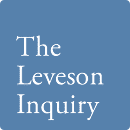Censorship, self-censorship and the Olympic spirit: Confusion over blocking of BBC content as Olympic rules kick in
 Chilling free speech in the name of brands, rights and commercialisation is not what promoting the Olympic spirit is about, says Kirsty Hughes
Chilling free speech in the name of brands, rights and commercialisation is not what promoting the Olympic spirit is about, says Kirsty Hughes
This piece was originally published on Huffington Post UK
Friday’s opening of the Olympic Games, with the extraordinary spectacle created by Danny Boyle, ranging from the industrial revolution to the digital age, from children’s literature to the National Health Service, has received plaudits and praise along with some bemusement and criticism. It may be just as well though that it didn’t celebrate another British icon, the BBC.
The impact of the commercialisation of the Games, with lucrative sponsorship and rights deals, means another British virtue — freedom of speech — is rather less free than normal for the duration of London 2012. A particularly disturbing example of this is the BBC — which has said that due to rights restrictions various radio programmes, ranging from the prestigious Radio 4 Today news programme to the lighter Radio 2 Chris Evans’ Breakfast Show and Radio 5 Live, whether live or on iPlayer, may not be available to audiences abroad for the duration of the Games.
While the BBC World Service has a proud history of broadcasting into authoritarian regimes, faced with its lucrative rights deal for UK broadcasting of the Games, the BBC is blocking its own output from being available internationally. It has a helpfully succinct explanation of this on its own news site where it says: “The BBC’s agreement with the International Olympic Committee means we are not allowed to broadcast anything online outside the UK from the Olympic Park or Olympic venues. As a result this programme may need to be blanked for International listeners due to rights issues surrounding Olympic content in programmes.”
Perhaps conscious of quite how ludicrous this is, and damaging to the BBC’s own image and values, by Sunday the BBC had apparently carried out some damage-limitation negotiations with the International Olympic Committee so at least the Today programme could be restored to international listeners — though the announcement of this appears to be confined to a small blog update which states:
After discussion, the IOC and the BBC have agreed that there is no need to block our international streams of Radio 4 programmes with a wide news agenda. Radio 5 Live (apart from the news programme Up All Night) and 5 Live Olympics Extra will remain available only in the UK.
We knew that the Olympic commercial brands deals had put money ahead of free speech — Locog published months ago two lists of words that must not be combined at risk of legal action for breaching the brand/copyright rules. These include not combining the words “games”, “2012” or “twenty twelve” with, for example, “gold”, “silver” “medals”, “sponsor” or “summer”. But more examples keep coming in of the censorship effects, and the chilling of the right to peaceful protest.
Unauthorised YouTube videos of the Games are reportedly being taken down with alacrity. Meanwhile, a group of cyclists has been banned from cycling in Newham for the duration of the Games.
The Olympic charter celebrates a number of human rights, declaring that: “The practice of sport is a human right… Any form of discrimination with regard to a country or a person on grounds of race, religion, politics, gender or otherwise is incompatible with belonging to the Olympic Movement.” The charter makes no commitment to that other key and universal human right — freedom of expression. But chilling and censoring free speech in the name of brands, rights and general commercialisation is surely not quite what promoting the Olympic spirit is all about.
Kirsty Hughes is Chief Executive of Index on Censorship
 MORE ON LOCOG’S OLYMPIC CENSORSHIP AT INDEX’S FREE SPEECH BLOG
MORE ON LOCOG’S OLYMPIC CENSORSHIP AT INDEX’S FREE SPEECH BLOG
PLUS NATALIE HAYNES GETS TO GRIPS WITH THE RULES POLICING THE BRAND OF THE LONDON GAMES HERE
AND READ MORE ON SPORT AND HUMAN RIGHTS IN INDEX ON CENSORSHIP MAGAZINE’S SPORTS ISSUE


